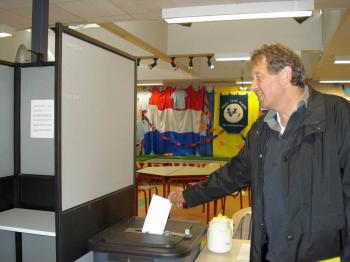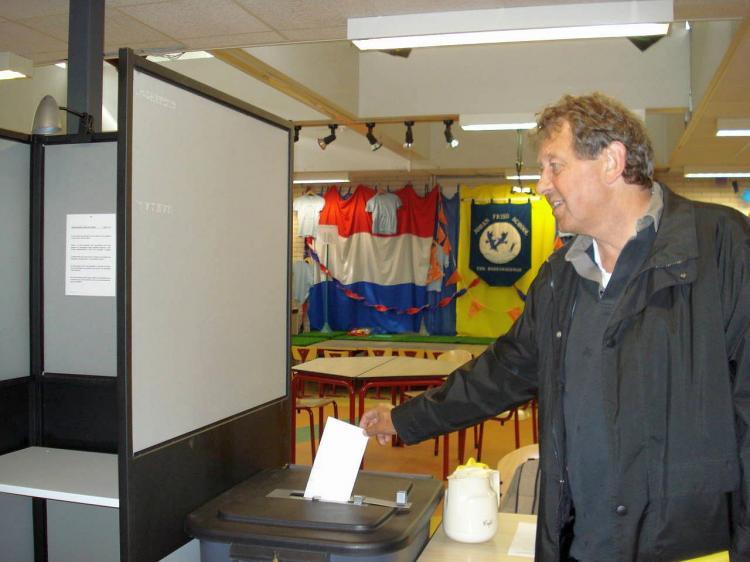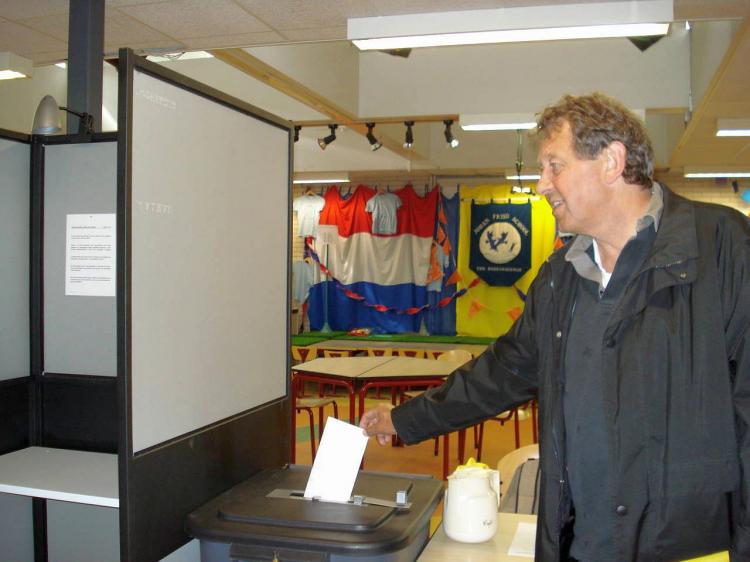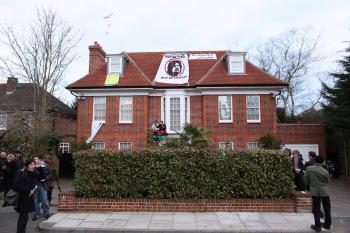On Thursday the elections for the European Parliament started in the 27 member states across Europe. The Netherlands and Great Britain were scheduled first, with the rest of Europe following in the coming few days. The Dutch went to the polls to pick their 25 representatives of the total 736 seats available in the European Parliament.
According to an exit poll made by Synovate, a research agency, the pro-European Union liberal democrats D66 (three seats, +two) and newcomer PVV (four seats, +four) rolled out as the big winners. The biggest party in the Netherlands, the Christian Democrats, lost two seats, while the other ruling Dutch Labor Party PVDA suffered a heavy loss with nearly half their seats being taken.
Besides the obvious losses of the established parties, a striking aspect of the provisional result is that of the two parties that came out as winners, one is the pro-European Union D66 while the other is the anti-European Union PVV. With both parties being opposition parties, many interpreted this as a signal of general dissatisfaction with the present Dutch government.
“We [the ruling parties] all have been given our homework about our message, and our campaign, and why we did not succeed to convince the people,” labor party PVDA leader Bos was quoted as saying by Dutch media in a reaction to the loss his party suffered.
The turnout percentage of the Dutch is estimated at 40 percent, which is only a little higher than the 39 percent of 2004. This is despite increased media coverage, with commercials of famous sportsmen and even the Dutch Prime Minister Balkenende appearing on television to encourage the Dutch people to make use of their vote.
According to an exit poll made by Synovate, a research agency, the pro-European Union liberal democrats D66 (three seats, +two) and newcomer PVV (four seats, +four) rolled out as the big winners. The biggest party in the Netherlands, the Christian Democrats, lost two seats, while the other ruling Dutch Labor Party PVDA suffered a heavy loss with nearly half their seats being taken.
Besides the obvious losses of the established parties, a striking aspect of the provisional result is that of the two parties that came out as winners, one is the pro-European Union D66 while the other is the anti-European Union PVV. With both parties being opposition parties, many interpreted this as a signal of general dissatisfaction with the present Dutch government.
“We [the ruling parties] all have been given our homework about our message, and our campaign, and why we did not succeed to convince the people,” labor party PVDA leader Bos was quoted as saying by Dutch media in a reaction to the loss his party suffered.
The turnout percentage of the Dutch is estimated at 40 percent, which is only a little higher than the 39 percent of 2004. This is despite increased media coverage, with commercials of famous sportsmen and even the Dutch Prime Minister Balkenende appearing on television to encourage the Dutch people to make use of their vote.




